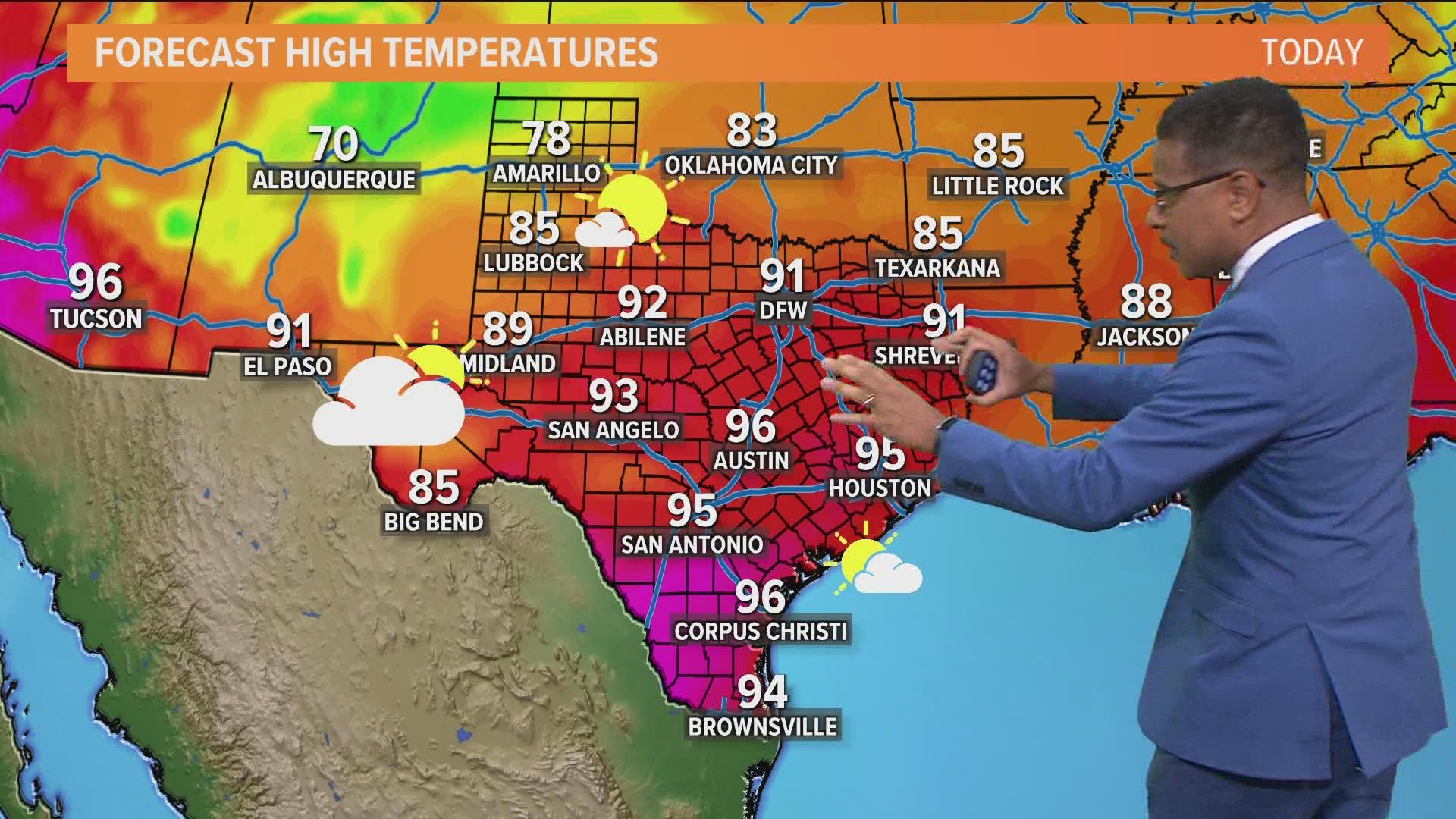DALLAS — This will make Monday's "cold front," with temperatures expected to top out in the low 90s, feel downright icy: On this day 42 years ago, it hit 113 degrees at Dallas-Fort Worth International Airport - for the second day in a row.
The back-to-back scorchers on June 26 and June 27 of 1980 still hold the all-time record for hottest temperatures ever recorded at DFW.
We've come close a few times, including in September 2000 (yes, September), when we hit 111. And then we hit 110 in August 2011.
The summers of 1980 and 2011 were particularly rough.
In 1980, we set a record for most consecutive days in triple digits, at 42, and most triple-digit days in a single month, at 31 in July..
In 2011, we set the record for most 100-degree days in a year, with 71 total.
Those two summers are the first reference points for when we talk about "historically hot" years. We're off to a blistering start this year, at least in terms of 100-degree days; we've had nine already, and our average date for the first triple-digit day is July 1.
A couple weeks ago our WFAA weather team took a look at the early data, and they had a few takeaways:
Yes, it's likely going to be hotter than normal for the rest of the summer, and four key indicators point toward that:
- We have a strong La Niña, and a typical La Niña brings warmer and drier than normal summers in Texas.
- Our first 100-degree day was June 11, well ahead of schedule and similar to early triple-digit days in 1980 (June 7) and 2011 (June 13).
- More triple-digit days in June than normal: We usually only have two, on average, but hotter-than-normal summers, like potentially this year, see them earlier and more often.
- Our drought conditions aren't great, as we're experiencing the worst summer start in nearly a decade. A dry ground allows the sun to warm the ground faster, meaning higher daytime temperatures.

